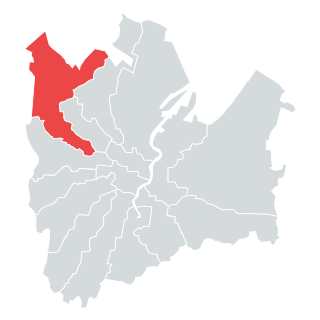
The Parliament of Northern Ireland was the home rule legislature of Northern Ireland, created under the Government of Ireland Act 1920, which sat from 7 June 1921 to 30 March 1972, when it was suspended because of its inability to restore order during The Troubles, resulting in the introduction of Direct Rule. It was abolished under the Northern Ireland Constitution Act 1973.

The Senate of Northern Ireland was the upper house of the Parliament of Northern Ireland created by the Government of Ireland Act 1920. It was abolished with the passing of the Northern Ireland Constitution Act 1973.
There were two elections in Ireland on 24 May 1921, as a result of the Government of Ireland Act 1920 to establish the House of Commons of Northern Ireland and the House of Commons of Southern Ireland. A resolution of Dáil Éireann on 10 May 1921 held that these elections were to be regarded as elections to Dáil Éireann and that all those returned at these elections be regarded as members of Dáil Éireann. According to this theory of Irish republicanism, these elections provided the membership of the Second Dáil. The Second Dáil lasted 297 days.
Cromac, a division of Belfast, was a UK parliamentary constituency in Ireland. It returned one Member of Parliament (MP) to the House of Commons of the United Kingdom from 1918 to 1922, using the first past the post electoral system.
Duncairn, a division of the parliamentary borough of Belfast, was a UK parliamentary constituency in Ireland. It returned one Member of Parliament (MP) to the House of Commons of the United Kingdom from 1918 to 1922, using the first past the post electoral system.
Ormeau, a division of Belfast, was a UK parliamentary constituency in Ireland. It returned one Member of Parliament (MP) to the House of Commons of the United Kingdom from 1918 to 1922, using the first past the post electoral system.
Pottinger, a division of Belfast, was a UK parliamentary constituency in Ireland. It returned one Member of Parliament (MP) to the House of Commons of the United Kingdom from 1918 to 1922, using the first past the post electoral system.
Shankill, a division of the parliamentary borough of Belfast, was a UK parliamentary constituency in Northern Ireland. It returned one Member of Parliament (MP) to the House of Commons of the United Kingdom from 1918 to 1922, on the electoral system of first past the post.

The Government of Ireland Act 1920 was an Act passed by the Parliament of the United Kingdom to create two separate parliaments in Ireland: the Parliament of Northern Ireland and the Parliament of Southern Ireland. The Fifth Schedule to this act provided the constituencies for the House of Commons in these two separate parliaments. These same constituencies also replaced those provided in the Redistribution of Seats (Ireland) Act 1918 for representation of Ireland in the House of Commons of the United Kingdom at Westminster. Sinn Féin used these constituencies to elect the Second Dáil (1921–22) and those constituencies in Southern Ireland were used to elect the Third Dáil (1922–23).
Arthur Black PC(NI) KC was an Irish barrister, judge and Ulster Unionist Party politician.
The 1952 Belfast South by-election was held following the resignation of Ulster Unionist Party (UUP) Member of Parliament, Hugh Gage.
James Augustine Duff was a Scottish-born Northern Irish businessman and Ulster Unionist Party politician.

On 9 June 2011, a by-election was held for the United Kingdom constituency of Belfast West. The by-elected was prompted by the resignation of the constituency's Member of Parliament, Gerry Adams in advance of his candidacy in the 2011 general election in the Republic of Ireland.






